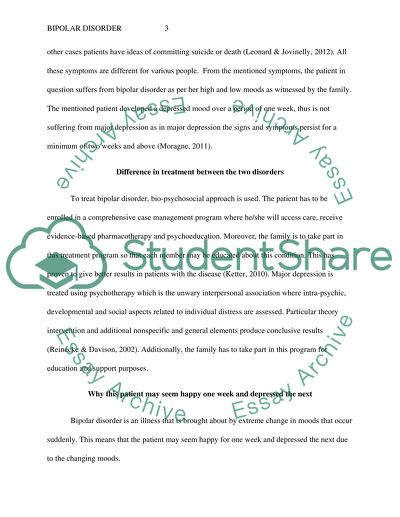Cite this document
(“Bipolar Disorder Essay Example | Topics and Well Written Essays - 500 words”, n.d.)
Bipolar Disorder Essay Example | Topics and Well Written Essays - 500 words. Retrieved from https://studentshare.org/nursing/1665945-bipolar-disorder
Bipolar Disorder Essay Example | Topics and Well Written Essays - 500 words. Retrieved from https://studentshare.org/nursing/1665945-bipolar-disorder
(Bipolar Disorder Essay Example | Topics and Well Written Essays - 500 Words)
Bipolar Disorder Essay Example | Topics and Well Written Essays - 500 Words. https://studentshare.org/nursing/1665945-bipolar-disorder.
Bipolar Disorder Essay Example | Topics and Well Written Essays - 500 Words. https://studentshare.org/nursing/1665945-bipolar-disorder.
“Bipolar Disorder Essay Example | Topics and Well Written Essays - 500 Words”, n.d. https://studentshare.org/nursing/1665945-bipolar-disorder.


